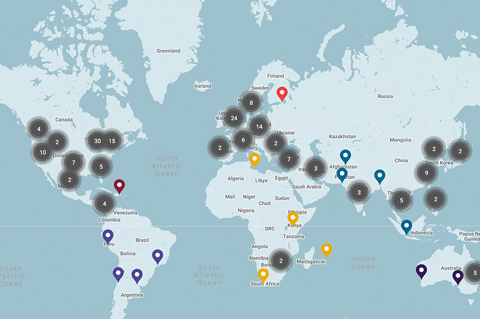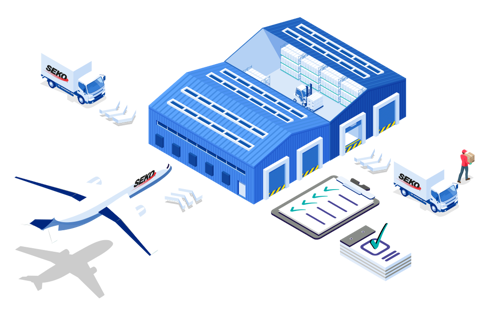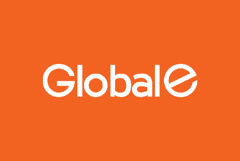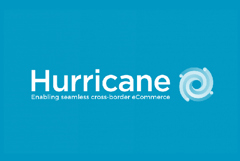PUSH BOUNDARIES TO CROSS BORDERS
Ecommerce has gone global. At SEKO, we simplify Section 321 and Type 86 entry into the US, so you can clear international borders and deliver your DDP and DAP parcels to over 220 countries. All while minimising customs charges and delays for enhanced customer satisfaction.


WHERE DO WE SHIP?
Offering greater coverage than any other logistics provider, we enable you to get closer to your customers, reduce shipping times and launch internationally.
For a full insight into our entire global network, click the button.
WHERE GLOBAL REACH MEETS LOCAL EXPERTISE
When it comes to ecommerce, no two countries are the same. Discover which specialist shipping solutions you can access in each core market.
- USA Domestic Standard and Express Delivery
- Daily parcel consolidations via air freight
- Inbound shipping services via three gateway hubs in NY, ORD and LA
- Section 321 and Type 86 clearances
- Transpacific Express - multi-modal express service
- Full shipping access into China
- Collection and sort centers in-country, shipping to Europe and North America
- Australia Domestic Express Delivery
- Daily consolidations
- All key hubs in Australia are owned and operated by SEKO
- Decentralized service via four entry points - Sydney, Melbourne, Brisbane and Perth
- All key hubs in New Zealand are owned and operated by SEKO
- Daily consolidations
- US parcels for New Zealand are sent to a major airport hub in Auckland
- Low Value Bulk Import (LVBI) clearances into the UK
- 22,000 sq ft facility neighbouring Heathrow, in Egham
- Next day delivery to all areas of Hong Kong
- Same day collection, processing and handover of freight to courier SF Express
- Manifest-cleared express freight
- Next day delivery, with two-hour turnaround from cargo arrival to courier collection
- Inventory safely positioned in-country
- Multi-user warehouses in Toluca, Monterrey and Queratro

DO YOU HAVE A QUESTION?
Whether you have a query about a specific service or want to speak to a specialist to find out more, get in touch here.
WHY CHOOSE SEKO?
Because when it comes to your oversized goods, we think bigger.






ACCESS THE FULL PACKAGE
Our integrated approach to logistics covers every type of shipping and technology requirement, so you can meet your customers’ most complex demands.
NEXT DAY DELIVERY
For your most urgent and time-sensitive orders.
TRACKED DELIVERY
For your most valuable and high-end shipments.
TRANSPACIFIC EXPRESS
For express shipments traveling from China or South East Asia.
GATEWAY AND DOWNSTREAM ACCESS SERVICES
For the final phase of your delivery process.
INTELLIGENT ROUTING
For the lowest cost routes and the quickest delivery times.
CARRIER PERFORMANCE ROUTING
For you to compare carrier performance with stated zonal transit times.
API INTEGRATION
For fast access to our top API features.
ADDRESS VALIDATION
For mitigation of potential delivery issues, in line with regional and national standards.

CLEAR CUSTOMS WITH CONFIDENCE
Our Section 321 and Type 86 expertise ensures the efficient management of bulk parcel customs clearance, so you can ship internationally - without unnecessary customs charges or unexpected import delays.
And one thing's for sure - when orders arrive on time and in budget, your customers are more likely to shop again.
TRUSTED BY LEADING BRANDS
We empower the biggest players in ecommerce to go from sale to scale.
SEAMLESSLY INTEGRATE TO ELEVATE
Alongside our own data-driven technology, we connect you to the leading ecommerce facilitators, so you can scale with a single integration.



















LATEST AND GREATEST
Explore our latest news articles and current client success stories to discover
how we're reacting to today's supply chain challenges.
MORE FROM SEKO ECOMMERCE
Global Fulfilment
Enter new markets and scale your business with our global network of fulfilment centres.
Global FulfillmentHOME DELIVERY & LAST MILE
Our specialist shipping solutions ensure your large goods reach the last mile on time, and in style.
Home Delivery & Last MileRETURNS & RECOMMERCE SOLUTIONS
Our industry-leading returns and recommerce solutions empower you to reduce spend and increase efficiencies, for both you and your customers.
Returns & Recommerce Solutions
ANY QUESTIONS, WE CAN HELP – HERE’S JUST A FEW WE RECEIVE REGULARLY
- What locations do you serve?
We empower you to scale into every core market, with 150+ offices and counting.
- Can you ship what I need to ship?
No matter how specialist or time-critical your request, we can handle it all.
- How much will it cost me?
No two shipments are the same, so inquire today for an exact quote.
Please complete the form below and we’ll be back in touch soon!



























